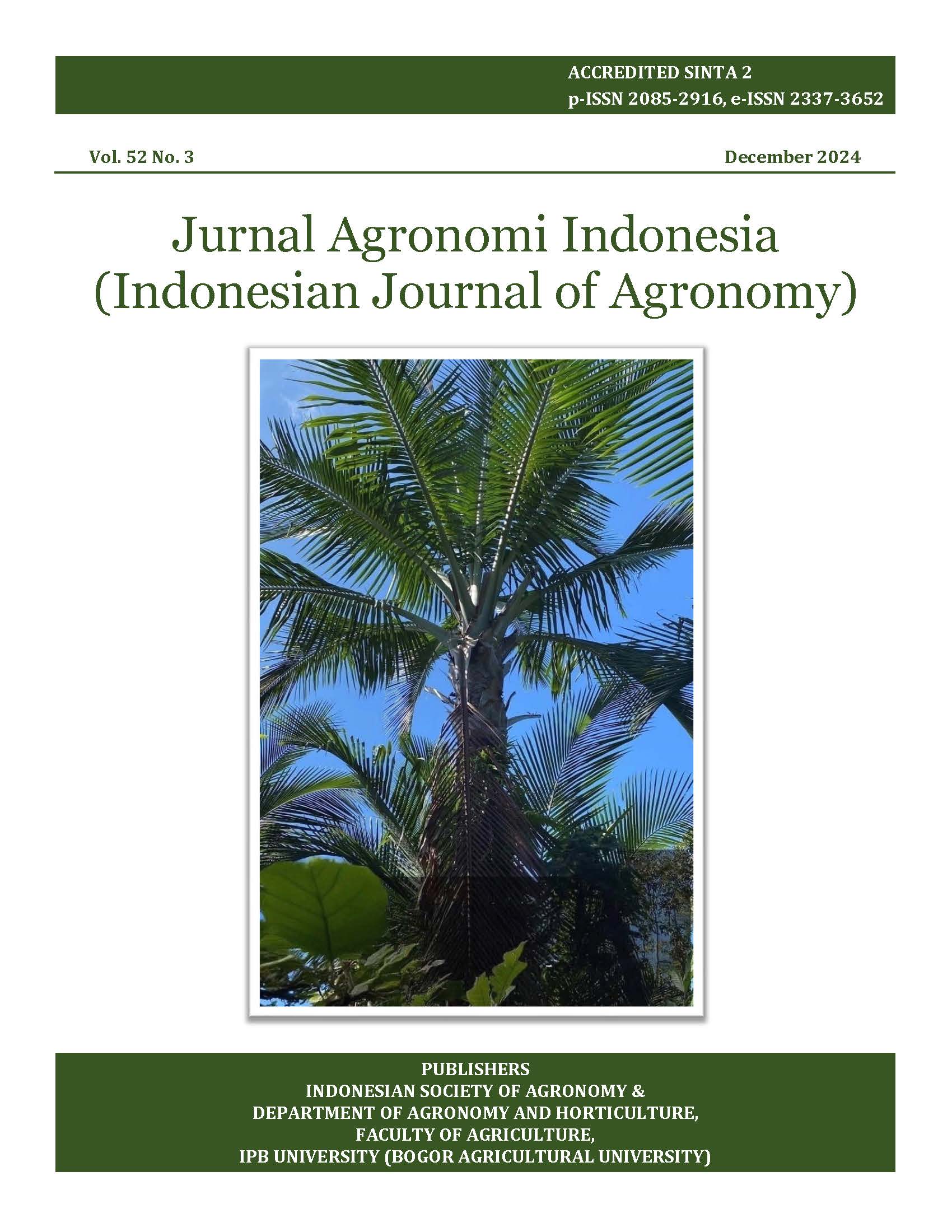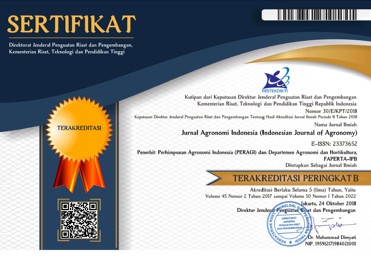Agronomic and metabolite profile of Cymbopogon citratus utilizing the black soldier fly (Hermetia illucens) bioconverted compost
Abstract
The black soldier fly (BSF) maggot, a bioconversion agent for organic waste, can generate stable materials like compost. Lemongrass (Cymbopogon citratus), recognized for its numerous health benefits, is the subject of this research. The primary objective of this study was to assess the impact of applying BSF maggot bioconversion compost on the bioactive compound profile in the ethanol extract of lemongrass plants. Lemongrass cultivation was conducted in Sindangjaya Village, Cipanas, West Java, Indonesia, employing a randomized complete block design with a single factor. The single factor was the type of fertilizer, namely: control (P1), organic manure fertilizer (P2), and maggot fertilizer (P3). The introduction of BSF maggot bioconversion compost to the growth medium significantly affected the plant height (at 4, 6, 8, 10, and 12 weeks after planting) and wet weight (including stems, leaves, roots, and shoots). Ethanol extraction and identification with LCMS/MS (Liquid Chromatography–Mass Spectrometry/Mass Spectrometry) instruments revealed 48 compounds. Each treatment group (P1, P2, and P3) contained 37, 30, and 35 compounds, respectively. These compounds consisted of various groups, including amino acids, terpenoids, alkaloids, quinolines, carbohydrates, methoxyphenol, benzodioxole, diphenylmethane, and steroids.
Keywords: bioactive; BSF frass; extraction; lemongrass













